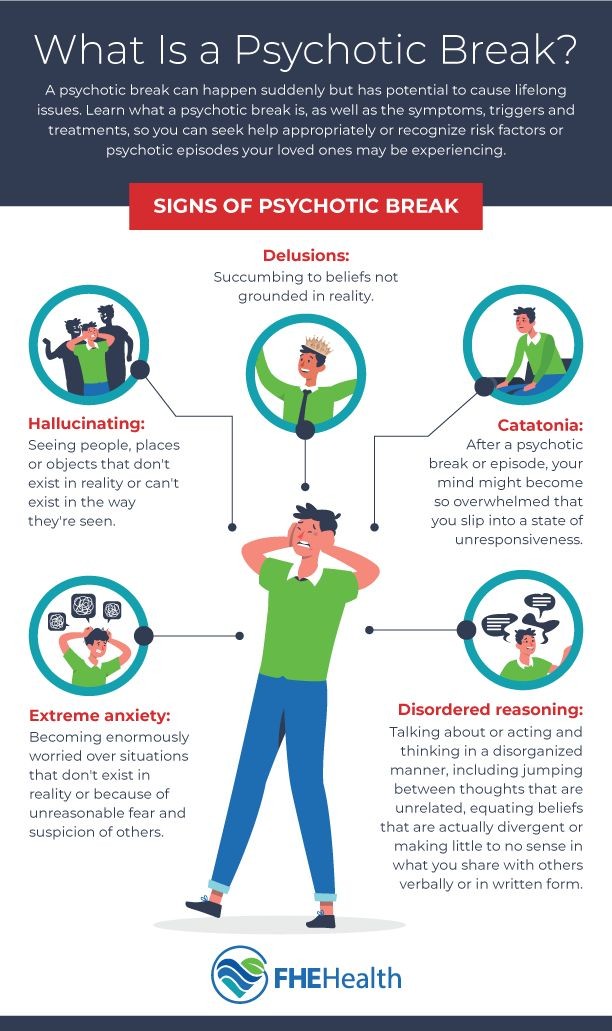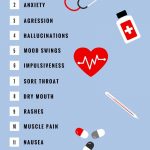
Contents
Can You Go Back to Normal After Psychosis?
Psychosis, a serious mental disorder, affects brain function. However, it is possible to fully recover and return to normal life after experiencing psychosis.
Approximately 100,000 teenagers and young adults in the United States have a first episode of psychosis each year, most commonly between the ages of 15 and 25.
The good news is that with the right support system, healing and returning to normalcy is possible. Some patients recover quickly with medication and therapy, while others may experience less severe symptoms of psychosis.
Psychosis causes an individual to lose touch with reality, interfering with their thoughts and perception. However, with the right attitude, support, and information, full recovery is likely. It’s important to note that not all psychotic patients have schizophrenia, even though many diagnosed with schizophrenia experience symptoms of psychosis alongside other mental conditions.
Symptoms of Psychosis
Some children diagnosed with schizophrenia may exhibit other disorders that manifest as psychosis. These can include obsessive-compulsive disorder or patterns of obsessions and repetitive actions. Other patients may develop conditions like OCD and panic disorder. Substance abuse is also common among adolescents and young adults diagnosed with schizophrenia, which can exacerbate their symptoms.
Initially, individuals may become withdrawn and isolate themselves from their surroundings, even without any other known emotional or behavioral issues. They may also become laser-focused on their disturbing thoughts and may even experience hallucinations that others cannot perceive. These symptoms are commonly referred to as a psychotic break.
During these episodes, individuals may also experience additional symptoms such as:
- Insomnia
- Depression
- Anxiety
- Hallucinations
- Social withdrawal
- Functional difficulties
Psychotic breaks can be particularly distressing for individuals and those around them who have never experienced such episodes. Communication becomes challenging, and others may consider involving authorities or seeking medical assistance.
Causes of Psychosis
Various factors have been associated with the onset of psychosis. While genetics and environment can influence its development, physical health problems can also cause psychosis. Common risk factors include schizophrenia, bipolar disorder, and severe depression. The likelihood of recurrent episodes can impact personal growth.
Other known causes of psychosis include:
- Neurological conditions like dementia, Alzheimer’s, or Parkinson’s
- Brain injury
- Side effects of certain medications
- Effects of illegal drugs such as cannabis
- Effects of withdrawal from illegal drugs or alcohol
- Periods of severe stress or anxiety
Scientific evidence suggests that the chances of recurrence can be reduced by up to 50% with proper treatment within the first two to three years after the first psychotic break. Appropriate treatment can also prevent the long-term disability that often follows untreated cases.
Postpartum Psychosis
After giving birth, experiencing symptoms of psychosis is known as postpartum psychosis or puerperal psychosis. It is rare but typically occurs suddenly within two weeks of delivery.
Doctors consider postpartum psychosis a medical emergency and prioritize prompt treatment to prevent progression to more complex mental health issues.
Common symptoms of postpartum psychosis include:
- Hallucinations or excessive worries
- Rapid speech
- Rapid thoughts
- Signs of depression
- Confusion
- Suspicion
Treatment of Psychosis
Psychosis requires a coordinated effort known as Coordinated Specialty Care to facilitate recovery. This intervention involves a multidisciplinary approach managed by a team of professionals who work with patients and their families to:
- Taper anti-psychotic medication doses
- Provide cognitive behavioral therapy for psychosis
- Offer family education and support
- Facilitate vocational rehabilitation
Past treatment practices involved high medication doses without medical or therapeutic follow-ups. However, contemporary psychosis treatment aims to help individuals manage symptoms and prevent future episodes.
A team approach: A psychiatrist will oversee the medication to ensure maximum benefit with minimal interference and side effects. Strategies for stress prevention and management are essential, as stressful situations can trigger relapses. The support of family and friends is crucial to ensure consistent attendance of medical appointments and proper nutrition, enhancing the effectiveness of medication treatment.
By placing less emphasis on symptom control, individuals can learn to manage their condition holistically. Engaging with doctors and exploring treatment options is recommended. There are individuals with psychosis who choose to reduce or eliminate their medication with the guidance of a professional and can achieve full recovery.
Anti-psychotic medication: Although medication is available, it may not always be the preferred choice. The potential side effects, such as significant weight gain, make anti-psychotic medications less optimal for young individuals. Medication treatments not only benefit the individual but also help reduce the stigma surrounding psychosis, highlighting that recovery is possible.
Increasing awareness about psychosis greatly aids in the recovery process. The knowledge that improvement is attainable serves as encouragement and instills hope, emphasizing the importance of adhering to the medical team’s advice for a speedy recovery.
Cognitive-behavioral therapy for psychosis: In combination with support, cognitive-behavioral therapy is effective in reducing the risk of future episodes. It is especially beneficial for managing hallucinations and changing reactions to distressing experiences. The focus of therapy is to alleviate distress rather than solely reducing symptoms. By helping individuals come to terms with reality and gain control over their behavior, cognitive-behavioral therapy supports informed decision-making regarding medication use.
Conclusion
Experiencing a psychotic break does not signify the end. With effective medication and support, it is possible to fully recover and return to a normal life. Countless individuals have overcome psychosis, schizophrenia, and depression. Although setbacks may occur, they do not define the individual indefinitely.
Sources:
Child Mind Institute: "A Psychiatrist Rethinks Anti-psychotic Meds for Schizophrenia.", "Early Treatment for Schizophrenia Improves Outcomes.", "How Does CBT Help People With Psychosis?", "Schizophrenia: Risk For Other Disorders."
National Alliance on Mental Illness: "Psychosis."
Rethink Mental Illness: "Psychosis."
World Health Organization: "Schizophrenia."


